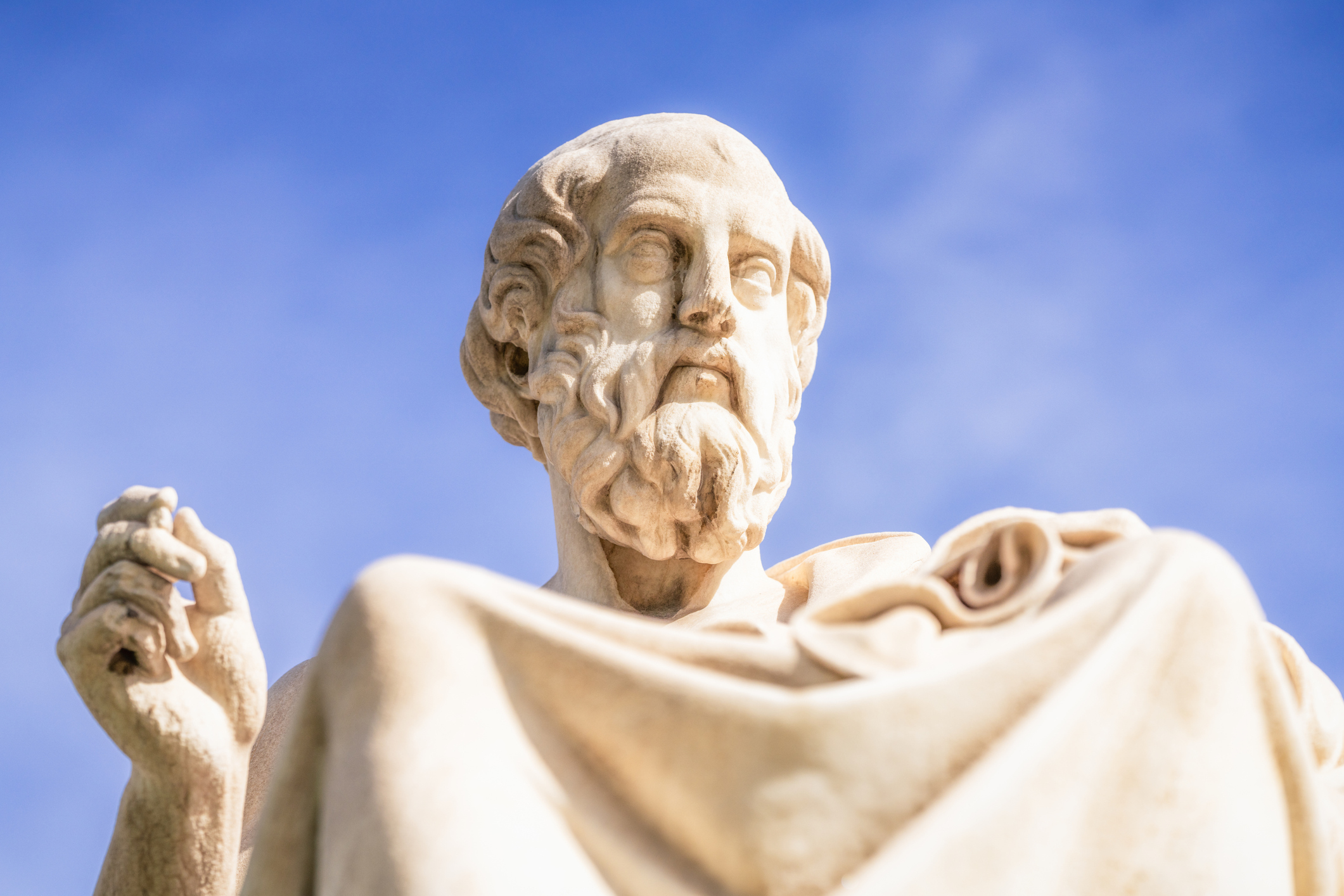Epicurus and Epicureanism: A Guide to Ancient Philosophy of Pleasure and Peace
May 25, 2024Epicurus (341–270 BCE) was an ancient Greek philosopher who founded Epicureanism, a school of thought that has significantly influenced Western philosophy. Epicureanism advocates for a life of pleasure achieved through modest living, intellectual pursuit, and the absence of pain and fear. Contrary to popular misconception, it does not promote hedonistic indulgence but rather emphasizes tranquility and freedom from anxiety. This article explores the life of Epicurus, the core principles of Epicurean philosophy, its ethical teachings, views on physics and the gods, and its enduring legacy.

What is Epicureanism?
Epicureanism is a philosophical system founded by Epicurus in the 4th century BCE. It teaches that the best way to live is to pursue pleasure and avoid pain. Epicurus believed that pleasure is the only good and that pain is the only bad. He also believed that death is not to be feared, because it is the end of all experience.
Epicureanism was very popular in the Roman world, and many famous Romans were Epicureans, including the poet Lucretius. Epicureanism continued to be influential in the Renaissance and the Enlightenment. In the 20th century, Epicureanism was revived by the philosopher Bertrand Russell.

The Life of Epicurus
Early Life and Education
Born on the island of Samos to Athenian parents, Epicurus began studying philosophy at a young age. He was influenced by the teachings of Democritus, who espoused atomism—the belief that the universe is composed of indivisible particles. At the age of 18, Epicurus went to Athens for his military service, where he was exposed to various philosophical schools.
Founding of The Garden
In 306 BCE, Epicurus established his own school called "The Garden" in Athens, which became a renowned center for philosophical discussion. Unique for its time, The Garden welcomed men and women, free citizens and slaves alike, emphasizing equality and friendship among its members. This inclusive community embodied the Epicurean ideal of simple living and mutual support.
Core Principles of Epicurean Philosophy
The Pursuit of Pleasure
At the heart of Epicureanism is the belief that pleasure is the highest good and the primary motivation for human action. However, Epicurus distinguished between different types of pleasure:
- Kinetic Pleasure: Derived from the satisfaction of desires, such as eating when hungry.
- Katastematic Pleasure: A state of tranquility and freedom from pain and distress.
Epicurus advocated for the latter, promoting a life focused on mental well-being rather than physical indulgence.
The Absence of Pain and Fear
Epicureanism teaches that true happiness comes from the absence of physical pain (aponia) and mental disturbance (ataraxia). By managing desires and eliminating unnecessary wants, individuals can achieve a peaceful state of mind.
The Three Categories of Desires
Epicurus categorized desires into:
- Natural and Necessary Desires: Basic needs like food and shelter, which are easy to satisfy and essential for happiness.
- Natural but Unnecessary Desires: Desires for luxury food or extravagant living, which are not essential and can lead to dissatisfaction.
- Unnatural and Unnecessary Desires: Desires for power, wealth, and fame, which are limitless and often cause more harm than good.
By focusing on natural and necessary desires, individuals can lead a content and fulfilling life.
Epicurean Ethics
Friendship and Community
Epicurus placed great importance on friendship, considering it an essential component of a happy life. He believed that friendships provide security and emotional support, contributing to mental tranquility.
Justice and Mutual Advantage
In Epicurean thought, justice is a social contract based on mutual advantage. Laws and moral codes arise from agreements to avoid harming one another, fostering a peaceful society conducive to individual happiness.
The Role of Virtue
While pleasure is the ultimate goal, Epicurus acknowledged that virtues like prudence, temperance, and courage are instrumental in achieving a pleasurable life. Virtuous behavior guides individuals in making wise choices that lead to long-term happiness.
Epicurean Physics and Metaphysics
Atomism and the Nature of the Universe
Epicurus adopted and modified Democritus's atomistic theory, proposing that everything in the universe consists of atoms moving in a void. This mechanistic view denied the existence of an afterlife or divine intervention, emphasizing that natural phenomena result from atomic interactions.
The Swerve (Clinamen)
A unique aspect of Epicurean physics is the concept of the "swerve," or clinamen, which suggests that atoms occasionally deviate from their expected path. This randomness allows for free will in an otherwise deterministic universe.
Mortality and the Soul
Epicurus argued that the soul is composed of atoms and dissolves upon death. Therefore, death should not be feared, as it is simply the cessation of sensation. He famously stated that death is nothing to us because when we exist, death is not present, and when death occurs, we no longer exist.
Views on the Gods
Non-Interventionist Deities
Epicurus did not deny the existence of gods but believed they were indifferent to human affairs. He posited that the gods live in a state of perfect bliss and have no interest in rewarding or punishing humans.
Critique of Superstition
By rejecting the notion of divine intervention, Epicurus aimed to liberate people from the fear of gods and superstition. He argued that such fears contribute to anxiety and hinder the pursuit of happiness.
Legacy and Influence
Impact on Hellenistic Philosophy
Epicureanism became one of the major philosophical schools during the Hellenistic period, attracting followers throughout the Mediterranean world. Its emphasis on personal happiness and rational understanding of the universe offered an alternative to the stoicism and fatalism prevalent at the time.
Preservation and Transmission of Epicurean Texts
Many of Epicurus's writings have been lost, but his teachings survived through the works of later philosophers and poets. Notably, the Roman poet Lucretius expounded Epicurean philosophy in his epic poem De Rerum Natura ("On the Nature of Things"), which played a crucial role in transmitting these ideas to subsequent generations.
Influence on Modern Thought
Epicureanism has had a lasting impact on modern philosophy, science, and ethics. Its materialistic view of the universe anticipated scientific explanations of natural phenomena. The emphasis on seeking happiness through simple pleasures resonates with contemporary ideas about well-being and minimalism.
Misconceptions and Reinterpretations
Throughout history, Epicureanism has often been misunderstood as promoting hedonistic indulgence. This misinterpretation overlooks the nuanced distinctions Epicurus made between different types of pleasure and his advocacy for moderation and intellectual fulfillment.
Conclusion
Epicurus and his philosophy of Epicureanism present a compelling vision of a life oriented toward achieving tranquility and happiness through modest living, intellectual pursuit, and the management of desires. By addressing fundamental human concerns about pleasure, pain, fear, and the nature of the universe, Epicureanism offers practical guidance on how to live a fulfilling life. Its materialistic worldview and emphasis on personal well-being have left an indelible mark on both ancient and modern thought, inviting continual reflection on what it means to lead a good life.

Related Articles
Epictetus: The Stoic Philosopher and His Enduring Wisdom
Jean-Jacques Rousseau's Philosophy
Category: Epicureanism Philosophy